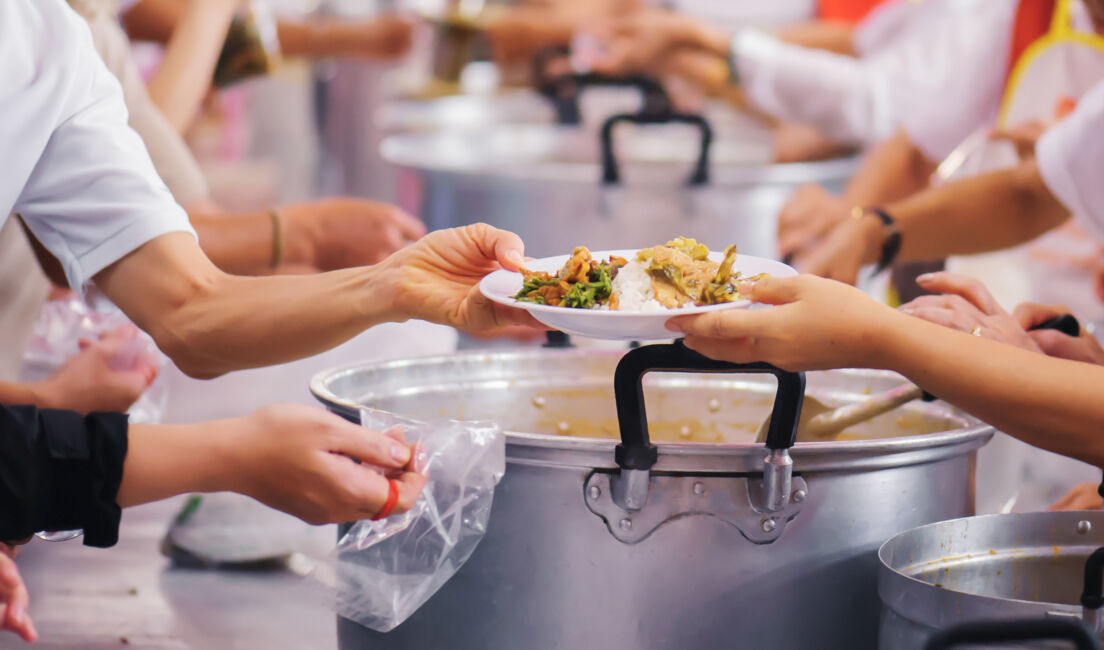As we think about how to respond to the need we see around us, perhaps we can focus on building relationships that acknowledge human creativity and entrepreneurship in all people, not just those who enjoy economic stability.
Families, poverty, and COVID-19

“What can we do to help?”
It’s a natural reaction to problems we see in the world. It is also a question I ask every expert at our events and on our podcast.
What if I’m asking the wrong question?
What does “help” look like?
Many of us feel helpless right now, sitting at home on the couch or in our makeshift offices. We’re unable to really “do” in the way that we used to. People we care about are struggling, and the need to answer this question—”What can I do to help?”—seems urgent.
Helping is a fundamentally optimistic act. To do something is a refusal to accept the world the way it is, and I think most of us want to make a difference. We don’t want to sit idly by when there are needs that can be met. The act of helping signals hope that things can be better tomorrow than they are today.
The alarming increase in unemployment and the disruption to the global economy seem likely to plunge large segments of our society into poverty in the coming days and months. How can I respond with hope and optimism when I’m not only house-bound but worried about my own future in a way that I couldn’t have envisioned just two months ago?
A change in perspective
Last week, I talked with Jesús Gerena, CEO of the Family Independence Initiative, about his organization’s approach to breaking the cycle of poverty in the lives of low-income families. FII invests directly in families through cash payments. Recipients then determine themselves how best to spend those dollars.
Jesús noted (in our latest episode of the Civil Squared Podcast) that, in the United States, we declared “war” on poverty more than 50 years ago. We think of poverty as a “problem that needs to solved.” But that entails a very paternalistic view of those experiencing poverty. As Jesús put it:
Oftentimes, when we think of “poor people,” we think of them as “poor” in every aspect of the word. And that’s just not true. They’re not poor of character. They’re not poor of community. They’re not poor of will or determination to do better.
Entrepreneurial dignity
I hope you don’t lose your job or face financial uncertainty, but if you do, how would you like to be viewed by others who want to help? Do you want them to think of you as a “problem” that requires a solution? Or would you prefer that others see you as the capable human being you are, one who is confronted by challenging circumstances? Do you want someone to decide what you need, or do you hope others recognize that your creativity and entrepreneurial thinking are a vital part of your recovery?
As an individual who has the clearest insight into your own circumstances, I suspect you prefer to make your own decisions about how best to provide for your family. Financial uncertainty wouldn’t change that fact about you, just because you found yourself in need of additional support.
The Family Independence Initiative extends a hand across, equal-to-equal, instead of “giving a hand up.” Today, they are responding to COVID-19 with #GiveTogetherNow, a campaign that provides direct cash payments to families who can use their own knowledge of their circumstances to choose how best to allocate those resources.
“How do I support creativity?” vs. “How do I help?”
If we really want a flourishing society and we want to confront our economic challenges, we need an even more optimistic mindset than the question “What can I do to help?” implies. Instead, we should listen and learn from solutions individuals create using their local knowledge.
One hopeful approach (and one that can lead to long-lasting change) requires us to recognize that those we would “help” have their own agency and ability to solve their own problems. Maybe we should aim higher than just being “helpers.” Let’s be neighbors who offer support in a spirit of equality and generosity.
As we think about how to respond to the need we see around us, perhaps we can focus on building relationships that acknowledge human creativity and entrepreneurship in all people, not just those who enjoy economic stability.
5 more links worth your time
-
- [Online Event] Civil Squared Live: Ask an Attorney: Justice, the Constitution, and COVID-19 – Join us online on Thursday, April 30th at 7:30 pm (EDT) as we chat with Clark Neily, Vice President of Criminal Justice at the Cato Institute about the effects of COVID-19 on our system of justice and our constitutional rights.
- Investing in Families to Escape Poverty, FreeThink – Learn more about the Family Independence Initiative in this short video.
- Every aspect of the coronavirus pandemic exposes America’s devastating inequalities, Vox – An in-depth look into how COVID-19 is “exacerbating the inequalities in American society,” and how low-income and marginalized communities are facing unique challenges and risks.
- Voices from the Pandemic: Burnell Cotton, Washington Post – A New Orleans grocery store owner offers a sobering look at how individuals in struggling communities are trying to support one another.
- In the Spirit of Tocqueville, City-Journal – Actions by private organizations and associations seem to suggest that “American civil society, diverse and self-organized, still responds to need.”
p.s. If you’ve got a political, ideological, or philosophical issue you’ve been considering, email me at jennifer@civilsquared.org and I’ll work with my team to put together a list of articles, issues, and interesting points of view to share with you and others.